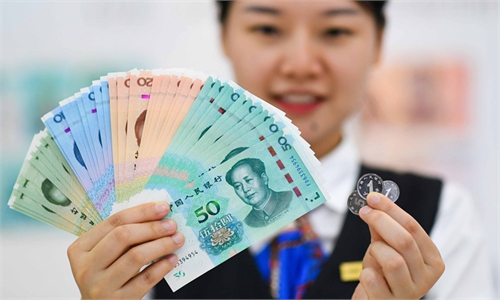China’s central bank working paper suggests establish RMB futures market at proper time

A file photo shows a pedestrian walks past the headquarters building of the People's Bank of China in Beijing, capital of China. (Xinhua)
A central bank working paper has suggested improve the onshore market pricing mechanism of RMB exchange rate and establish RMB currency futures market at proper time.
The research report written by staff members at the People's Bank of China (PBC), the country's central bank, finds that there are significant interactions among offshore exchange rates and between offshore and onshore exchange rates, which have been significantly enhanced following China's Exchange Rate Reform starting from August 11, 2015, and promote the formation of the global market-oriented pricing mechanism of RMB exchange rate.
"After the China's 8/11 Exchange Rate Reform, the global pricing mechanism of RMB is gradually mature, the linkage between the exchange rate of onshore and offshore RMB has been strengthened," said the report, published on the website of PBC on Tuesday.
Monitoring the flow of RMB, asset allocation and price changes should be strengthened, the report said, adding a macro and prudential management system of RMB currency risk should also be perfected in order to push forward the internationalization of RMB steadily.
As larger scale of transactions are taken by RMB at offshore markets, the offshore exchange rate of RMB will play a bigger role in future, which requires further relevant research and policies for regulation, Lian Ping, head of Zhixin Investment Research Institute, told the Global Times on Wednesday.
Starting from 2009, China launched a series of measures and policies to push forward the internationalization of RMB and its currency reform. That made the offshore RMB markets gradually operate in Hong Kong Special Administrative Region, London, Singapore, countries in Europe and Southeast Asia.
According to the triennial survey of foreign exchange by the Bank for International Settlements in 2019, the RMB remained the world's eighth most traded currency, with a daily average turnover of $284 billion.

A worker counts Chinese currency Renminbi (RMB) at a bank in Lianyungang, east China's Jiangsu Province, Aug. 11, 2015. (Xinhua/Si Wei)
"It is necessary to establish a RMB currency futures market, as it will facilitate mature risk management to accommodate the wider acceptance of RMB as an international currency," Lian noted, adding futures could make up for the loss of exchange fluctuations to some extent.
Commenting on China's current pace of RMB internationalization, Lian said the steps are being taken steadily, which meet the demand of China's opening up.
"Pushing forward the internationalization of RMB deliberately regardless of costs may not benefit China's economy," he said, warning "haste makes waste."
The process of RMB internationalization is relevant to China's economy, opening up measures, and macro management capability and market conditions, according to Lian.



